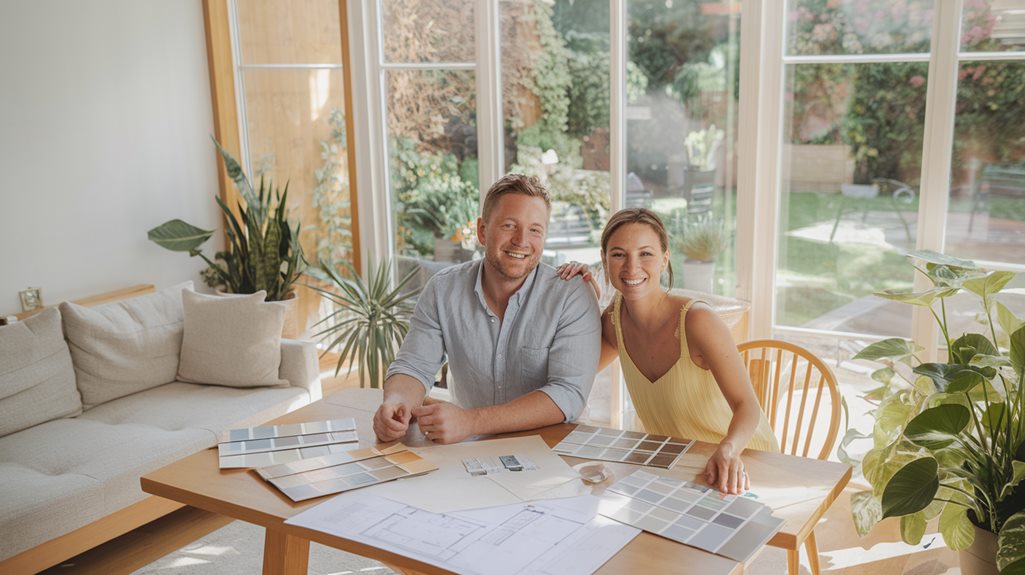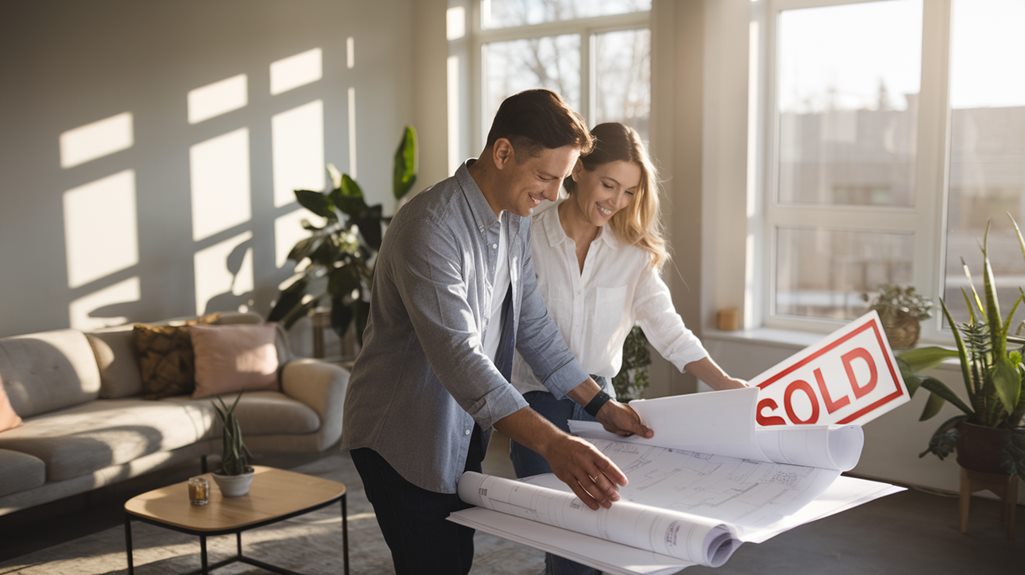Buying a house is a big step! First, take a look at your money situation. Check your credit score and make sure you don't have too many debts. You also want to have a steady job that brings in money.
Next, decide how much you can spend on a house. Think about how much money you need for a down payment and other costs. It's a good idea to get pre-approved for a mortgage. This helps show sellers that you are serious.
Find a real estate agent who knows a lot about houses. They can help you find the right home and negotiate the price. Make a list of what you want in a house and look at different neighborhoods.
Go to open houses to see the homes in person. When you find one you like, make a good offer. Don't forget to have a home inspection to check for any problems.
At the end, you will need to finalize your mortgage and go over the loan details.
Good luck on your journey to finding your new home!
Ready to start building equity in your own Michigan home? Get your personalized home loan quote today.
Assess Your Financial Health

Before you start thinking about buying a house, it's really important to check your money situation. First, look at your credit score. This number can change what kinds of loans you can get and how much they'll cost.
Next, try to pay off any debts you have. This will help you look better to banks and lenders. It's also a good idea to save money for your down payment and other costs that might come up later.
Make sure you have a steady job. Lenders like to see that you earn the same amount of money regularly.
Keep track of your spending so you can see where your money goes and find ways to save more.
Think about what you own now and how it can help you buy a home later. Also, it's smart to have an emergency fund. This is extra money you can use if something surprising happens.
Michigan residents, unlock the door to your new home. Request your home loan quote from Treeside Financial today.
Determine Your Budget
Now that you know how your money is doing, it's time to make a plan for buying a home. Setting your budget is super important to make sure you're making a smart choice.
First, think about your mortgage options. Look at different banks or lenders to find one that gives you good terms.
Next, decide how much money you can put down as a down payment. The more you pay upfront, the less you have to pay each month. Don't forget to think about extra costs, like home insurance and property taxes.
You might be closer to buying your home than you think
Take our 2-minute home buyer readiness quiz to see how prepared you really are – no credit check required.

Here's what to do:
- Look at how much money you make each month and how much you spend.
- Check out different mortgage choices and compare them.
- Pick a down payment amount that feels good for you.
- Think about any future bills you might have.
Following these steps will help you feel safe and sure when buying your new home.
Get Pre-Approved

Getting pre-approved for a mortgage is an important step when buying a home. It shows sellers that you're a serious buyer. It also helps you understand what mortgage options you have.
First, check your credit score. This score affects the mortgage deals you can get. A higher score usually means better rates, which can help you afford more.
Next, talk to lenders. They can help you find different types of loans, like fixed-rate or adjustable-rate. Choose the one that works best for you and your money.
During pre-approval, you'll share some financial information, like your income and debts. This helps lenders see how much money you can borrow.
When you get pre-approved, you feel more confident when searching for your dream home!
Choose a Real Estate Agent
Choosing the right real estate agent is very important when you want to buy a house.
Start by looking for agents who know a lot about the area where you want to live. Check their experience by looking at reviews from other people and see if they've any special awards.
A good agent will help you feel sure and ready as you go through the steps of buying a home.
Find Experienced Professionals
Finding the right real estate agent can help you feel good about buying a home. It can be a tricky process, but an experienced agent knows how to help you. They understand the market and can give you advice that fits your needs.
Here are some things to think about when picking an agent:
- Local knowledge: An agent who knows your area can help you with its special features.
- Good at negotiating: You want someone who'll fight for what you want.
- Clear communication: An agent who shares updates with you'll keep you in the loop.
- Successful history: Look for agents who've a lot of happy customers.
When you find the right agent, you'll feel right at home in your new place.
Evaluate Agent Credentials
When you want to find a great real estate agent, it's important to check their credentials. First, look at how much experience they have. An agent who's been working for a long time usually knows a lot about the market and how to negotiate. You can ask them about their recent sales to see how good they really are.
Next, read what their clients say about them. Testimonials can tell you if the agent is professional and easy to talk to. It's best to choose agents who've happy clients that felt cared for while buying their homes.
Lastly, make sure they've the right licenses and certifications for your area.
Identify Your Needs

When you want to buy a house, think about what you really need.
What things are most important for your life now and later?
Also, think about where you want to live.
Is it close to your job, schools, and places you like to go?
Prioritize Key Features
When you start looking for a house, it's really important to know what you need and what's most important to you. Here are some key things to think about:
- Flexible spaces: Find rooms that can change with you. They should be able to be used for different things as your life changes.
- Energy efficiency: Look for homes that save energy. This will help you save money and be kinder to the Earth.
- Outdoor areas: If you like to garden or have fun outside, make sure there's a nice space for that.
- Storage solutions: You need enough storage to keep your home neat and tidy.
Also, think about how easy it will be to sell the house later and if the neighborhood has things that make living there better.
Remember to consider how much work the house needs to stay nice over the years.
Determine Ideal Location
When looking for a new home, it's important to find the right place that fits your life. Think about what you need around you. Do you want parks to play in, schools for your kids, or stores close by? These things can make your daily life better and help you feel like you belong.
Safety is super important too. Look up crime rates and talk to people who live there to see if the area feels safe.
You might also want to think about how close your job is and if you can easily get public transport. All these things help make your life easier and more enjoyable.
Research Locations
Picking the right place to live is very important when you're buying a home. It can change how you live and how much your house is worth. You should look into the people who live there and what fun things are nearby. This way, you can make sure the neighborhood fits what you like and need.
Here are some things to think about:
- Schools: Good schools are important! Even if you don't have kids, homes near good schools can be worth more money.
- Transportation: It's nice to have buses or trains close by. This makes it easier to get to where you need to go.
- Work distance: If you can get to work quickly, you'll have more time for fun and relaxing.
- Community feel: Take a walk around. Visit local shops and parks. Go to events to see if the neighborhood feels like a good home for you.
Attend Open Houses

Going to open houses is a really important part of buying a home. It helps you see the houses in person, which is way better than just looking at pictures online. You can feel what the house is like, see how it's laid out, and check out its special features.
When you go to an open house, it's good to be polite. Try to arrive on time, dress nicely, and be respectful of the homeowner's space. First impressions are important!
Think about how the house makes you feel and if it fits what you want in a home. Talk to the agent, ask questions, and listen to what other visitors say. This can help you learn more about the house and the neighborhood.
Visiting open houses not only helps you decide if a place is right for you but also helps you feel more connected to the community you might soon live in.
Make an Offer
Making an offer on a house can be tricky, but it's important to be smart and confident. You want the seller to see you as a serious buyer.
Here are some easy steps to help you make a good offer:
- Price: Look at what similar houses are selling for. Offer a fair price.
- Contingencies: Try to keep these to a minimum. Fewer conditions make your offer stronger.
- Earnest Money: Put down a bigger deposit to show you really want the house.
- Closing Date: Suggest a closing date that works well for the seller.
Conduct Inspections

When you want to buy a house, it's very important to get help from good inspectors.
They'll look at the house carefully and find any problems that could make it hard for you later.
This way, you can ask the seller to fix things or lower the price.
Hire Qualified Inspectors
When you want to buy a home, one important step is to hire good inspectors. These are the people who'll check if your new home is safe and in good shape.
First, make sure the inspectors have the right qualifications. They should be experienced and certified.
Here are some things to think about when choosing an inspector:
- Licenses: Make sure they're licensed to work in your state.
- Experience: Look for inspectors who've worked for many years.
- Reputation: Read reviews and ask other people for their opinions.
- Detailed Reports: You should get clear and detailed information about what they found.
Identify Potential Issues
After you find a good inspector, the next step is to look for problems in the house. You want to find anything that might cost you money later. Keep an eye out for warning signs that could be a sign of trouble.
It's also important to know about zoning rules that might change what you can do with your property. Think about what's happening in the neighborhood, too, because it can affect how happy you're living there.
Watch for issues with the home's value, as they can change how much the house is worth. Don't forget about ownership problems, which can make things tricky.
Lastly, check the condition of important parts of the house and think about how much it will cost to keep everything working. Doing all of this helps you know you're making a smart choice and will be happy in your new home.
Negotiate Repair Costs
Now that you have the inspection report, it's time to talk about fixing things. To get the best deal, you should plan carefully. First, get clear prices for the repairs that need to be done. This will help you when you talk to the seller.
Make sure to focus on these important areas:
- Big Problems: Look at any serious issues that could make the home unsafe or less valuable.
- Important Systems: Think about things that keep the home running, like heating, plumbing, and electricity.
- Bug Damage: Check for any harm caused by bugs like termites.
- Health Risks: Make sure to talk about any dangers like mold or lead paint.
Close the Deal
Getting ready to buy your new home is exciting! But there are some important steps to make sure everything goes smoothly.
First, check that your money is ready. This means talking to your bank or lender to make sure they can help you buy the house. Look over the loan details to make sure they match what you need.
Next, take a look at the closing costs. These are the extra fees you might've to pay, like insurance and taxes. Knowing about these costs ahead of time can help you avoid surprises when it's time to sign the papers.
Lastly, don't forget to do a final walk-through of the house. This is your chance to make sure all the repairs you asked for are done.
Paying attention to these details helps you feel good about moving into your new home and starting this big adventure!








